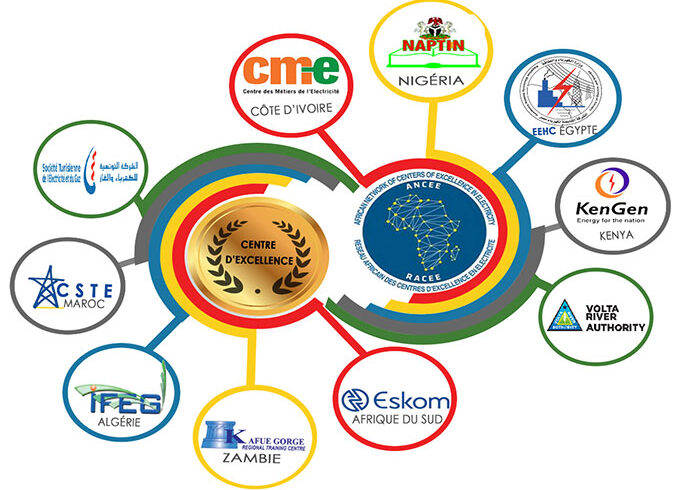ANCEE
Presentation
is an innovative initiative for the shared development of excellence in capacity building initiated by the Association of Power Utilities of Africa (APUA). The network is composed of ten (10) Training Centres selected to become «Excellence» label icons in accordance with the high standards of pedagogical and professional quality chosen by the Association of Power Utilities of Africa (APUA).
Since the launch of these activities in February 2016, ANCEE has supported more than 40 power utilities to implement their training plans through the award of grants in a first phase and a second phase of grants, financed with funds from the African Development Bank (AfDB) and the French Development Agency (AFD).
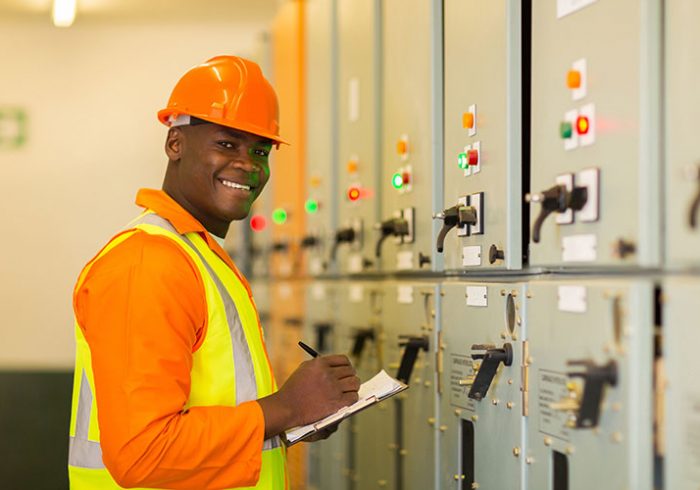
For its operation, the network is led by an autonomous Coordination Unit (CU), acting under the responsibility of the Director General of APUA. The CU team consisting of a Coordinator, a Business and Marketing Manager, and a Project Assistant in charge of acquisitions ensures coordination between centres of excellence and power utilities.
– Increase the performance of African power utilities by improving the
qualification level of their human resources through training.
– Making the sector more attractive to investors
– Achieving better quality of electricity supply and services
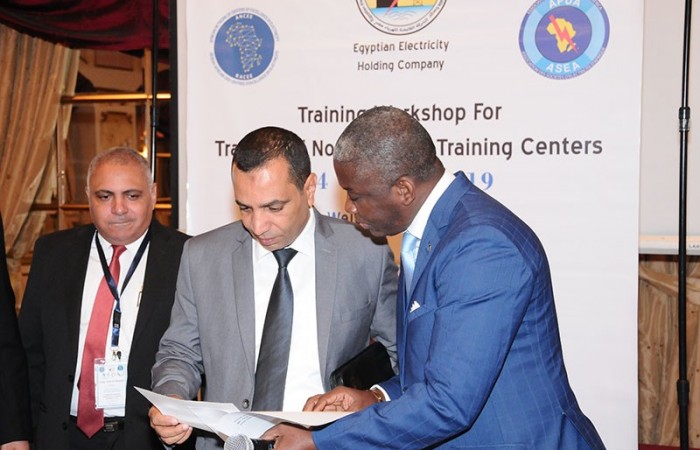
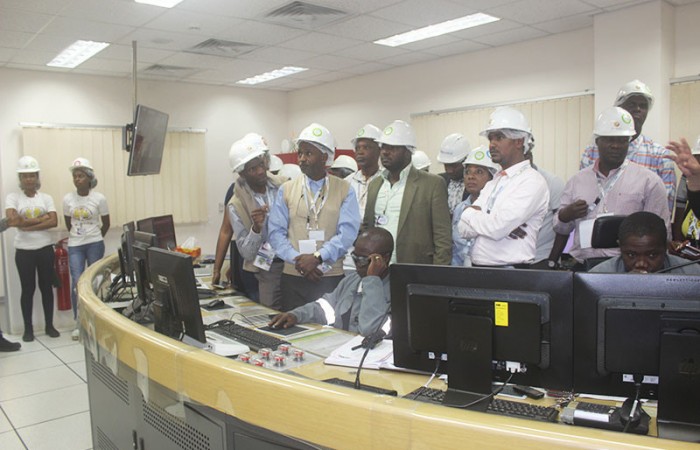
The network was gradually set up with 3 accessions in 2016, 5 accessions in 2017 and 2 accessions in 2019, according to the following chronology:
| Logo | Centre of Excellence | Date of signing |
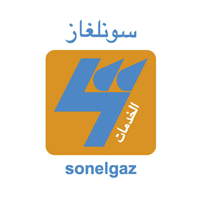 |
Electricity and Gas Training Institute (IFEG), affiliated to the SONELGAZ Group in Algeria.
The IFEG-Spa Electricity and Gas Training Institute was established in 2007 as part of the subsidiary of the Société Nationale de l’Électricité et du Gaz (SONELGAZ). the IFEG thus becomes the instrument for the implementation of the SONELGAZ Group’s acquisition, production policy. Maintaining and developing the skills of its human resources through its assessment and training activities. |
04 may 2016 |
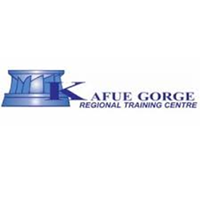 |
Kafue Gorge Reginal Training Center (KGRTC), affiliated with the Zambia Electricity Supply Corporation (ZESCO) in Zambia.
KGRTC was established in 1989, with the support of NORAD and Sida, to provide competitive specialized training solutions in hydropower and related fields to electricity utilities in the Southern African Development Community (SADC) and Sub-Saharan regions. Read the presentation of the center
|
01 july 2016 |
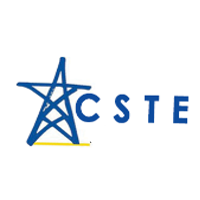 |
The Centre des Sciences et Techniques de l’Electricité (CSTE), affiliated to the Office National de l’Electricité et de l’Eau (ONEE) in Morocco.
Read the presentation of the center
|
05 september 2016 |
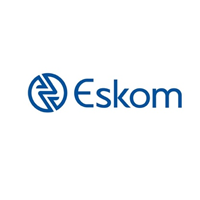 |
Eskom Academy of Learning (EAL) affiliated to ESKOM in South Africa.
Read the presentation of the center
|
24 march 2017 |
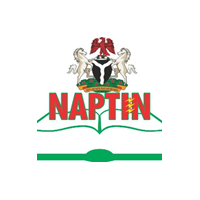
|
National Power Institute of Nigeria (NAPTIN) in Nigeria.The National Power Training Institute of Nigeria (NAPTIN) which was established on March 23rd, 2009 commenced full operation in September, 2009. The primary purpose for its establishment is to provide training for power sector personnel and coordinate training activities in the sector.
Read the presentation of the center
|
30 june 2017 |
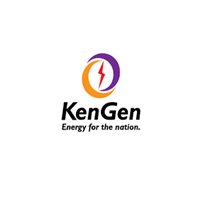
|
Geothermal Training Center (GTC) affiliated to KENGEN in KENYA.
Kenya Electricity Generating Company PLC (KenGen) is the leading electric power generating company in East Africa. KenGen was incorporated in 1954 under the Kenyan Companies Act as Kenya Power Company (KPC) with the mandate to generate electricity through the development, management and operation of power plants.
|
07 july 2017 |
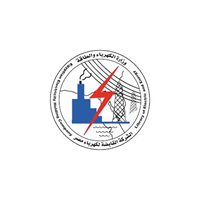 |
Egyptian Electricty Holding Company en (Egypte).
The Egyptian Electricity Holding Company, established in 1976 as the Egyptian Electricity Authority, is responsible for all power plants, transmission and distribution in the Arab Republic of Egypt. Read the presentation of the center
|
17 august 2017 |
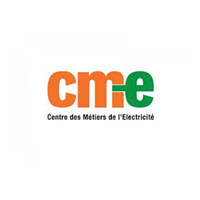 |
Centre de Métiers de l’Electricité (CME) / affiliated with the Compagnie Ivoirienne d’Electricité (CIE-Cote d’Ivoire).
The CME, created on 06 March 1970 and operated by the CIE (Compagnie Ivoirienne d’Electricité) in Côte d’Ivoire. It is an international centre of excellence for industrial training providing continuing education, diplomas and certifications. Read the presentation of the center
|
31 october 2017 |
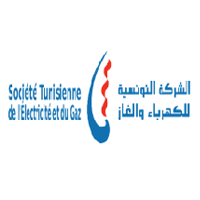
|
The Khlédia Training and Development Centre (CFPK), created by the STEG, has been operational since 1976.
Equipped with a multidisciplinary infrastructure, the CFPK organises training actions relating to the basic trades of the STEG, whether in electricity or gas. It also ensures that its know-how is open to the outside world, especially domestic and foreign companies.. Read the presentation of the center
|
08 july 2019 |
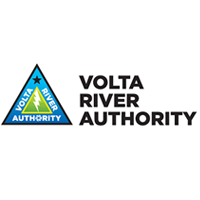 |
VRA Academy affiliated to VRA au Ghana.
VRA Academy is an engineering training provider, offering continuous professional development courses in Power System Operations and Maintenance, Utility Management, Language for Power Business, Leadership, Finance and Secretarial Skills. The Academy is committed to its values of “professionalism, integrity, safety, responsibility and continuous learning” to meet the current needs of the industry. Read the presentation of the center |
11 december 2019 |
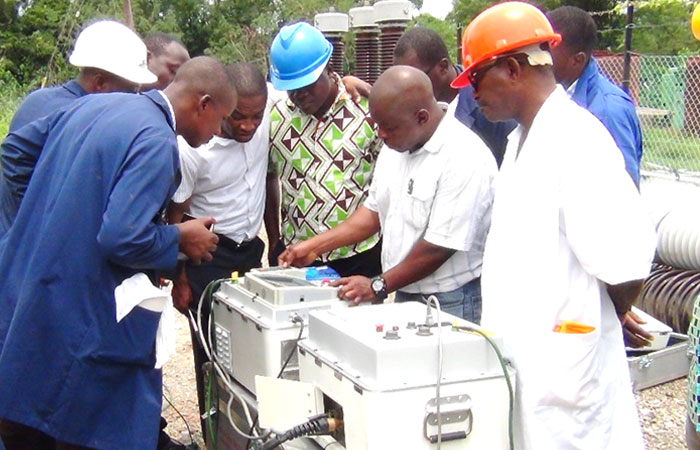
In the framework of implementation of its program of activity, ANCEE has a coordination unit for its operation and animation of the network. The is led by an autonomous Coordination Unit (CU), acting under the responsibility of the Director General of APUA, The CU team is composed of:
– a Coordinator,
– a Sales and Marketing Manager,
– and a Project Assistant responsible for acquisitions.
The CU provides coordination between centres of excellence and utilities. The Coordination Unit is ANCEE’s operational coordinating, information and promotion body. Its main responsibilities are:
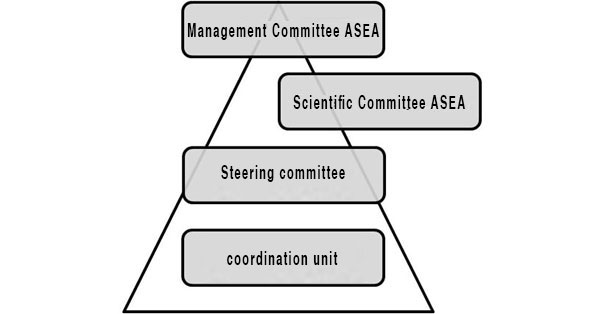
ANCEE’s organizational structure consists of three governance bodies:

ORGANIZATIONAL DIAGRAM
International Solar Alliance (ASI) is a joint initiative of France and India, launched at COP 21, for an unprecedented effort in favour of solar energy.
The goal of the ASI is to produce the rules of the game, standards and standards of solar energy, in order to obtain a rapid and massive deployment in countries rich in solar radiation but where the risks are still perceived as high. ASI implements concrete tools, capacity-building measures and innovative financial instruments. One example is the harmonization of public policies, regulations and tariffs between countries that
reduces uncertainty, strengthens the economic viability of solar projects and reassures investors. The partnership between ASI and APUA/ANCEE was signed in 2020.
